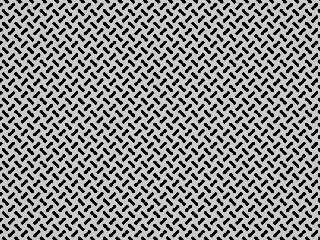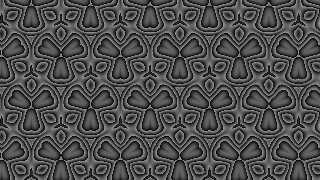 |
 |
|
 |
|
 |
|  |
|  |
|
 |
|
 |
|  |
|  |
|
 |
Ha!
I think I have one of his "curles" patterns printed out somewhere here in a
pile.
I was just sifting through the archives and pulling out anything that seemed to
pop out.
Hopefully you know a few more - as you can tell, I love this stuff.
Post a reply to this message
|
 |
|  |
|  |
|
 |
|
 |
|  |
|  |
|
 |
I've also been interested in making this pattern:
http://sambrunacini.com/wp-content/uploads/2020/10/pursuit.png
and I could have sworn it has an actual NAME that I found once, and now I of
course can't find again.
Also of interest would be a metal diamond-plate pattern - the "honeycomb"
pattern that I posted for jr has that alternating direction / row attribute that
might be a good starting point for modification.
Post a reply to this message
|
 |
|  |
|  |
|
 |
|
 |
|  |
|  |
|
 |
"Bald Eagle" <cre### [at] netscape net> wrote:
> Also of interest would be a metal diamond-plate pattern - the "honeycomb"
> pattern that I posted for jr has that alternating direction / row attribute that
> might be a good starting point for modification.
#declare YY = 0.625;
#declare Plate1 = function {select (1-pow(sin(2*pi*x)*cos(2*pi*YY) +
sin(2*pi*YY)*cos(2*pi*z) + sin(2*pi*z)*cos(2*pi*x), 2), 0, 0, 1)} net> wrote:
> Also of interest would be a metal diamond-plate pattern - the "honeycomb"
> pattern that I posted for jr has that alternating direction / row attribute that
> might be a good starting point for modification.
#declare YY = 0.625;
#declare Plate1 = function {select (1-pow(sin(2*pi*x)*cos(2*pi*YY) +
sin(2*pi*YY)*cos(2*pi*z) + sin(2*pi*z)*cos(2*pi*x), 2), 0, 0, 1)}
Post a reply to this message
Attachments:
Download 'mathpatterns2.png' (237 KB)
Preview of image 'mathpatterns2.png'

|
 |
|  |
|  |
|
 |
|
 |
|  |
|  |
|
 |
hi,
"Bald Eagle" <cre### [at] netscape net> wrote:
> ...
> > Kinda looks like a "dog bone" wood patch that alternates in directions like a
> > checkerboard.
>
> Sometimes these things are a little easier to write using some helper functions.
>
> #declare S2P = function (V) {sin (tau*V/L)}
> #declare C2P = function (V) {cos (tau*V/L)}
> #declare T = 0.5;
> #declare N = 1;
> #declare Honeycomb = function (X, Y, Z) {pow(S2P(X)*C2P(Z) + S2P(Z) + C2P(X), N)
> - pow(T, N)}
plane with "Honeycomb" pattern, seen through "kaleidoscope".
regards, jr. net> wrote:
> ...
> > Kinda looks like a "dog bone" wood patch that alternates in directions like a
> > checkerboard.
>
> Sometimes these things are a little easier to write using some helper functions.
>
> #declare S2P = function (V) {sin (tau*V/L)}
> #declare C2P = function (V) {cos (tau*V/L)}
> #declare T = 0.5;
> #declare N = 1;
> #declare Honeycomb = function (X, Y, Z) {pow(S2P(X)*C2P(Z) + S2P(Z) + C2P(X), N)
> - pow(T, N)}
plane with "Honeycomb" pattern, seen through "kaleidoscope".
regards, jr.
Post a reply to this message
Attachments:
Download 'ktpms.png' (440 KB)
Preview of image 'ktpms.png'

|
 |
|  |
|  |
|
 |
|
 |
|  |
|  |
|
 |
"jr" <cre### [at] gmail com> wrote:
> plane with "Honeycomb" pattern, seen through "kaleidoscope".
Wheee! Nice job. :)
Can you adjust the symmetry? Have 6-fold, or 7?
After playing with this stuff a bit, it seems like that whole sin*cos xy yz zx
thing has a lot of potential as a base pattern to do all sorts of interesting
things with. Even just the threshold can change the apparent look quite a bit.
And then you have the orthogonal plane value/slice to vary.
We can square the whole sum, square the terms, take the root, etc.
- BW com> wrote:
> plane with "Honeycomb" pattern, seen through "kaleidoscope".
Wheee! Nice job. :)
Can you adjust the symmetry? Have 6-fold, or 7?
After playing with this stuff a bit, it seems like that whole sin*cos xy yz zx
thing has a lot of potential as a base pattern to do all sorts of interesting
things with. Even just the threshold can change the apparent look quite a bit.
And then you have the orthogonal plane value/slice to vary.
We can square the whole sum, square the terms, take the root, etc.
- BW
Post a reply to this message
|
 |
|  |
|  |
|
 |
|
 |
|  |
|  |
|
 |
hi,
"Bald Eagle" <cre### [at] netscape net> wrote:
> ...
> Wheee! Nice job. :)
start on. :-)
> Can you adjust the symmetry? Have 6-fold, or 7?
> After playing with this stuff a bit, it seems like that whole sin*cos xy yz zx
> thing has a lot of potential as a base pattern to do all sorts of interesting
> things with. Even just the threshold can change the apparent look quite a bit.
yes, I just discovered that replacing "tau" with "pi * scale_factor" and using
slightly different factors, things get real .. interesting.
re your question, I answer with an Obama quote: "Yes, we can" :-) below is
excerpted from my WIP code:
/* added bailout & max_trace */
global_settings {adc_bailout (1/254) assumed_gamma 1 max_trace_level 255}
/* #mirrors */
#declare n_ = 3;
#declare angle_ = 360 / n_;
/* epsilon */
#declare eps_ = 1e-3;
/* length of tube */
#declare len_ = 10;
/* prism with hole */
#declare pi_ = <.99,0,0>;
#declare po_ = <1.01,0,0>;
#declare pts_ = array [n_][2];
#for (i_, 0, n_-1)
#local ta_ = vrotate(po_, <0,(angle_*i_),0>);
#local tb_ = vrotate(pi_, <0,(angle_*i_),0>);
#local pts_[i_][0] = <ta_.x,ta_.z>;
#local pts_[i_][1] = <tb_.x,tb_.z>;
#end
/* rotate to centre on -z */
prism {
linear_spline eps_, len_, 2*(1+n_),
#for (i_,n_-1,0,-1) pts_[i_][0], #end pts_[n_-1][0],
#for (i_,0,n_-1) pts_[i_][1], #end pts_[0][1]
open
sturm on
no_shadow
finish {ambient 0 reflection {1} specular 0}
rotate <270,0,0>
}
regards, jr. net> wrote:
> ...
> Wheee! Nice job. :)
start on. :-)
> Can you adjust the symmetry? Have 6-fold, or 7?
> After playing with this stuff a bit, it seems like that whole sin*cos xy yz zx
> thing has a lot of potential as a base pattern to do all sorts of interesting
> things with. Even just the threshold can change the apparent look quite a bit.
yes, I just discovered that replacing "tau" with "pi * scale_factor" and using
slightly different factors, things get real .. interesting.
re your question, I answer with an Obama quote: "Yes, we can" :-) below is
excerpted from my WIP code:
/* added bailout & max_trace */
global_settings {adc_bailout (1/254) assumed_gamma 1 max_trace_level 255}
/* #mirrors */
#declare n_ = 3;
#declare angle_ = 360 / n_;
/* epsilon */
#declare eps_ = 1e-3;
/* length of tube */
#declare len_ = 10;
/* prism with hole */
#declare pi_ = <.99,0,0>;
#declare po_ = <1.01,0,0>;
#declare pts_ = array [n_][2];
#for (i_, 0, n_-1)
#local ta_ = vrotate(po_, <0,(angle_*i_),0>);
#local tb_ = vrotate(pi_, <0,(angle_*i_),0>);
#local pts_[i_][0] = <ta_.x,ta_.z>;
#local pts_[i_][1] = <tb_.x,tb_.z>;
#end
/* rotate to centre on -z */
prism {
linear_spline eps_, len_, 2*(1+n_),
#for (i_,n_-1,0,-1) pts_[i_][0], #end pts_[n_-1][0],
#for (i_,0,n_-1) pts_[i_][1], #end pts_[0][1]
open
sturm on
no_shadow
finish {ambient 0 reflection {1} specular 0}
rotate <270,0,0>
}
regards, jr.
Post a reply to this message
|
 |
|  |
|  |
|
 |
|
 |
|  |
|  |
|
 |
This one looks like sliced pita bread or hot dogs buns or something.
#declare Pattern3 = function {tan (3*x) * sin (5*x/2) * sin (z) - 0.1}
Post a reply to this message
Attachments:
Download 'mathpatterns2.png' (602 KB)
Preview of image 'mathpatterns2.png'

|
 |
|  |
|  |
|
 |
|
 |
|  |
|  |
|
 |
An interesting approach that I'll have to look into further.
https://gcboore.com/pages/trigonometric-functions.html
Might be able to do the same thing with pigment patterns and homebrew function
patterns.
Post a reply to this message
|
 |
|  |
|  |
|
 |
|
 |
|  |
|  |
|
 |
On 28/08/2024 22:06, Bald Eagle wrote:
> An interesting approach that I'll have to look into further.
>
> https://gcboore.com/pages/trigonometric-functions.html
>
> Might be able to do the same thing with pigment patterns and homebrew function
> patterns.
>
Really interesting, looking forward to the results of your experiments !
--
YB
Post a reply to this message
|
 |
|  |
|  |
|
 |
|
 |
|  |
|  |
|
 |
"jr" <cre### [at] gmail com> wrote:
> "Bald Eagle" <cre### [at] netscape com> wrote:
> "Bald Eagle" <cre### [at] netscape net> wrote:
> > ...
> > #declare S2P = function (V) {sin (tau*V/L)}
> > #declare C2P = function (V) {cos (tau*V/L)}
> > #declare T = 0.5;
> > #declare N = 1;
> > #declare Honeycomb = function (X, Y, Z) {pow(S2P(X)*C2P(Z) + S2P(Z) + C2P(X), N)
> > - pow(T, N)}
>
> plane with "Honeycomb" pattern, seen through "kaleidoscope".
a loop-able animation of the pattern. warning -- weird ;-).
<https://drive.google.com/file/d/1Aet9noapf8SBgX2u62TTYMFYx5NfbckT/view?usp=sharing>
enjoy, jr. net> wrote:
> > ...
> > #declare S2P = function (V) {sin (tau*V/L)}
> > #declare C2P = function (V) {cos (tau*V/L)}
> > #declare T = 0.5;
> > #declare N = 1;
> > #declare Honeycomb = function (X, Y, Z) {pow(S2P(X)*C2P(Z) + S2P(Z) + C2P(X), N)
> > - pow(T, N)}
>
> plane with "Honeycomb" pattern, seen through "kaleidoscope".
a loop-able animation of the pattern. warning -- weird ;-).
<https://drive.google.com/file/d/1Aet9noapf8SBgX2u62TTYMFYx5NfbckT/view?usp=sharing>
enjoy, jr.
Post a reply to this message
|
 |
|  |
|  |
|
 |
|
 |
|  |




![]()